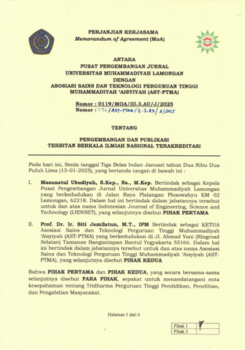CLEAN WATER RECOMMENDATION SYSTEM BASED ON WATER QUALITY WITH TURBIDITY AND TDS (TOTAL DISSOLVE SOLID) SENSORS BASED ON INTERNET OF THINGS (IOT)
DOI:
https://doi.org/10.38040/ijenset.v1i2.1014Abstract
Residents of Khayangan Residence Cepu typically use water from natural sources such as rivers, lakes, and wells, often unaware of the potential dangers posed by contaminated water. To address this, a detection system is proposed to monitor and provide real-time information on water quality using Turbidity and Total Dissolved Solids (TDS) sensors. The system is developed using the Waterfall methodology, which ensures a structured and systematic approach, with each stage of development completed before proceeding to the next. This minimizes errors and enhances the accuracy of the final system. The IoT-based system utilizes Turbidity and TDS sensors connected to an ESP32 microcontroller, which processes data every 3 seconds and displays it on a website. The system measures water quality, with recorded values of PPM at 276, TDS at 0.34, and Turbidity at 16.08. This real-time monitoring system provides a straightforward process for assessing water quality in the housing complex, ensuring that residents have access to safe and clean water. The aim is to empower residents to make informed decisions about water use, thereby enhancing efficiency and safety in daily water consumption.
Keywords- ESP32; Turbidity Sensor; and TDS Sensor
Downloads
Published
Issue
Section
Citation Check
License
Authors who publish with this journal agree to the following terms:
- Authors retain copyright and grant the journal the right of first publication with the work simultaneously licensed under a Creative Commons Attribution License that allows others to share the work with an acknowledgment of the work's authorship and initial publication in this journal.
- Authors are permitted and encouraged to post their work online (e.g., in institutional repositories or on their website) prior to and during the submission process, as it can lead to productive exchanges, as well as earlier and greater citation of published work (See the Effect of Open Access).
- IJENSET journal by LPPM-UMLA is licensed under a Creative Commons Attribution-ShareAlike 4.0 International License.










